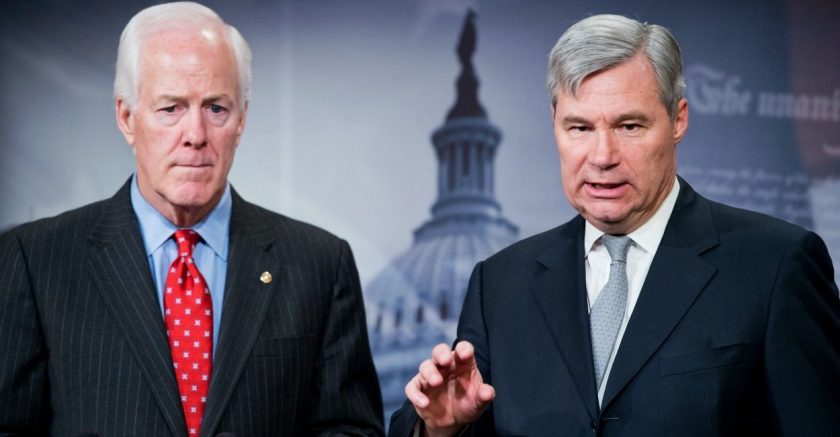A prison reform bill being considered in the U.S. House of Representatives embodies good policy for American taxpayers, families, and communities.
The House Judiciary Committee voted 25-5 last week to pass the FIRST STEP Act of 2018 (H.R. 5682) out of committee, sending it on to consideration on the House floor.
With the introduction of a companion bill in the Senate by Sens. John Cornyn, R-Texas, and Sheldon Whitehouse, D-R.I., the FIRST STEP (Formerly Incarcerated Re-enter Society Transformed, Safely Transitioning Every Person) Act represents much-needed bipartisan reform that promises to improve individual lives and public safety.
Building on the Prison Reform and Redemption Act of 2017 (H.R. 3356), Reps. Doug Collins, R-Ga., and Hakeem Jeffries, D-N.Y., co-sponsored the FIRST STEP Act to incentivize federal prisoners to become better equipped to support themselves and their families before they return to society.
The bill would enhance public safety by increasing the availability within federal prisons of activities that have been—and would continue to be—evaluated to most effectively reduce recidivism, including faith-based mentorship, job training and work programs, education, victim impact classes, and family relationship-building programs.
The FIRST STEP Act calls for prison wardens to partner with nonprofits, institutions of higher education, and private entities to provide this much-needed programming.
The bill would require an assessment of each inmate’s risk of reoffending during the prison intake process, and it would provide incentives for all eligible offenders to successfully participate in and complete those recidivism reduction programs.
Incentives would include more time to talk to and visit with family members, mentors, and religious leaders; receiving as much as 15 days of earned time credit for every 30 days of successful participation in a program, to allow inmates to spend more of their sentence in some form of community supervision or home confinement; and possibly to transfer to a correctional facility closer to an inmate’s home, a move that would make restorative family visits more feasible than they often are now. (The average prisoner is incarcerated 500 miles from his or her home.)
While the bill offers a number of carrots, it also comes with a few sticks, in the form of penalties for violations of program or other prison rules.
The bill also lists a number of criminal offenses—including many violent crimes, sexual abuse of a minor, and offenses related to biological or chemical weapons—that would disqualify inmates from receiving time credits for participation in any programming.
These sound policies have earned bipartisan support and deserve continued, open-minded debate in Congress.
Yet last week’s committee hearing revealed two diametrically opposed approaches to the bill: Rep. Steve Cohen, D-Tenn., voted yes, “not wanting the perfect to be the enemy of the good,” but Rep. Jamie Raskin, D-Md., voted no, wanting “the first step to be the best step that we can take.”
See the full story here.
Want more BFT? Leave us a voicemail on our page or follow us on Twitter @BFT_Podcast and Facebook @BluntForceTruthPodcast. We want to hear from you! There’s no better place to get the #BluntForceTruth.







